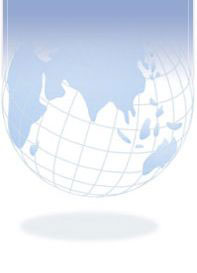Governmental Support
Global Information Freedom, and Internet Freedom in particular, as an effective force to promote freedom, human rights, and democracy, are recognized by the US government and the European Parliament, as evidenced by the following quotes.
The US Secretary of State established the Global Internet Freedom Task Force (GIFT) on February 14, 2006. (Ref. 1) The task force will consider foreign policy aspects of Internet freedom, including:
- The use of technology to restrict access to political content and the impact of such censorship efforts on U.S. companies;
- The use of technology to track and repress dissidents; and
- Efforts to modify Internet governance structures in order to restrict the free flow of information.
The Global Online Freedom Act, a bill introduced to the US Congress in 2006 and 2007 (HR 275), declares that it is U.S. policy to: (Ref. 2)
(1) promote the freedom to seek, receive, and impart information and ideas through any media; (2) use all appropriate instruments of U.S. influence to support the free flow of information; and (3) deter U.S. businesses from cooperating with Internet-restricting countries in effecting online censorship.
US Congress Representative Edward J. Markey, chairman of the House Subcommittee on Telecommunication and the Internet, introduced H.R. 5353, the Internet Freedom Preservation Act on Feb 13, 2008 (Ref. 3), stating that:
The global leadership in high technology the United States provides stems directly from historic policies that have ensured that telecommunications networks are open to all lawful uses and to all users. In addition, because of the vital role that broadband networks and the Internet fulfill in exercising our First Amendment rights to speak, it is important that the United States adopt a policy endorsing the open nature of broadband networks.
The European Parliament passed a Resolution on the EU-China Summit and the EU/China human rights dialogue, on Dec 13, 2007 (Ref. 4), expressing that the European Parliament is
“…concerned about the surveillance and censorship of information on the Internet, and calls on the Chinese authorities to end the blocking of thousands of websites, including European media websites; calls on the Chinese authorities to release writer Yang Maodong and the other 50 cyber-dissidents and web users imprisoned in China… calls on China to make concrete steps to grant freedom of expression, and to respect freedom of the press, both for Chinese and foreign journalists; is particularly concerned about the lack of implementation of the new regulation on international journalists active in China, and urges the Chinese authorities to immediately stop censoring and blocking - especially with the help of multinational companies - thousands of news and information websites based abroad; calls for the release of all journalists, Internet users and cyber-dissidents detained in China for exercising their right to information.”
On Feb 16, 2006, the US Congress held a hearing entitled "The Internet in China: A tool for freedom or suppression?" in which Yahoo, Google, Microsoft and Cisco were requested to present formal testimony regarding their role in Internet censorship in China. (Ref. 5) Congressman Chris Smith, co-chair of the hearing, reminded the audience of the following lesson: (Ref. 6)
“Tragically, history shows us that American companies and their subsidiaries have provided the technology to crush human rights in the past. Edwin Black’s book, IBM and the Holocaust, reveals the dark story of IBM’s strategic alliance with Nazi Germany. Thanks to IBM’s enabling technologies, from programs for identification and cataloging to the use of IBM’s punch card technology, Hitler and the Third Reich were able to automate the genocide of the Jews. … U.S. technology companies today are engaged in a similar sickening collaboration, decapitating the voice of the dissidents (Ref. 8).”
Universal Declaration of Human Rights (United Nations, Ref 7)
Article 19
“Everyone has the right to freedom of opinion and expression; this right includes freedom to hold opinions without interference and to seek, receive and impart information and ideas through any media and regardless of frontiers.”
References
[1] Secretary of State Establishes New Global Internet Freedom Task Force
http://www.state.gov/r/pa/prs/ps/2006/61156.htm
[2] Global Online Freedom Act of 2007
http://thomas.loc.gov/cgi-bin/bdquery/z?d110:HR00275:@@@L&summ2=m&
[3] Internet Freedom Preservation Act
http://markey.house.gov/docs/telecomm/hr5353.pdf
[4] European Parliament resolution of 13 December 2007 on the EU-China Summit and the EU/China human rights dialogue
http://www.europarl.europa.eu/sides/getDoc.do?pubRef=-//EP//TEXT+TA+P6-T...
[5] US Congress set to grill Internet companies over China clampdown
http://asia.news.yahoo.com/060213/afp/060212110843asiapacificnews.html
[6] The Internet in China: A Tool for Freedom or Suppression
http://www.foreignaffairs.house.gov/archives/109/26075.pdf
[7] Universal Declaration of Human Rights
http://www.un.org/Overview/rights.html
Our Mission
Inform, connect, and empower the people in closed societies with information on a free Internet.
Our Vision
The Great Firewall will be taken down as the Berlin Wall.
We Stand Together
Background
There is no freedom without freedom of information. There is no freedom of information without Internet freedom.

